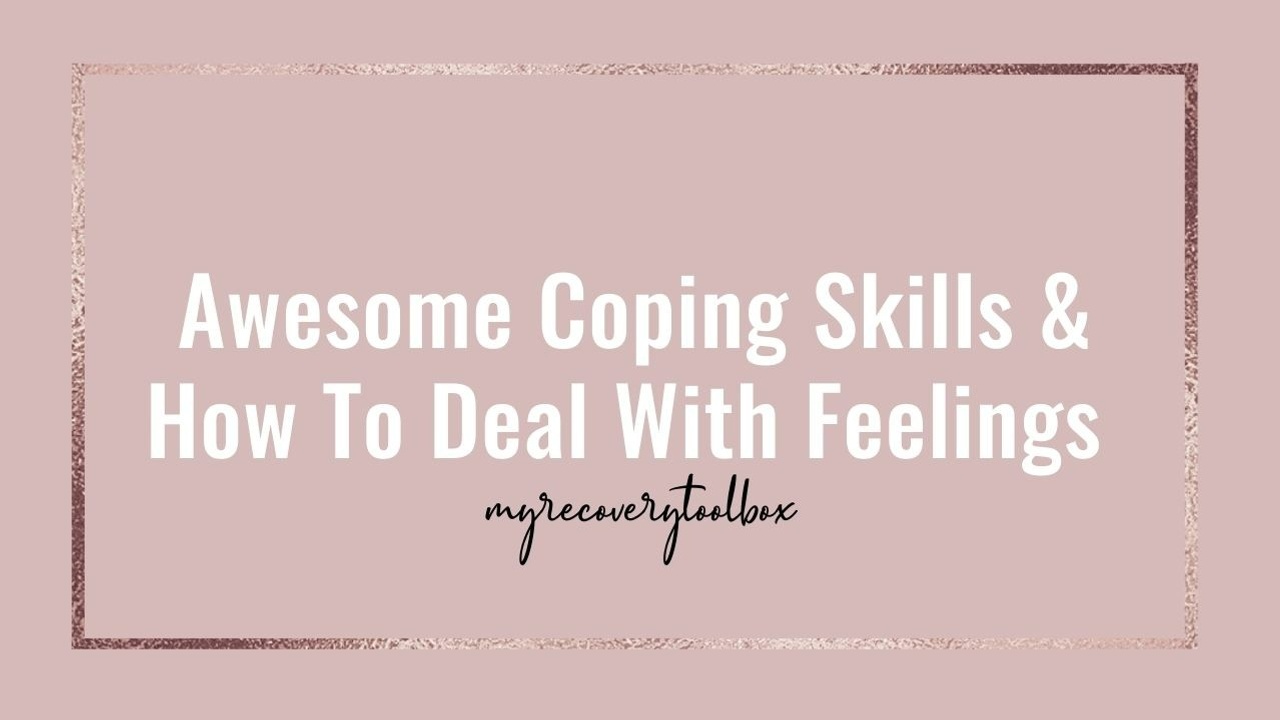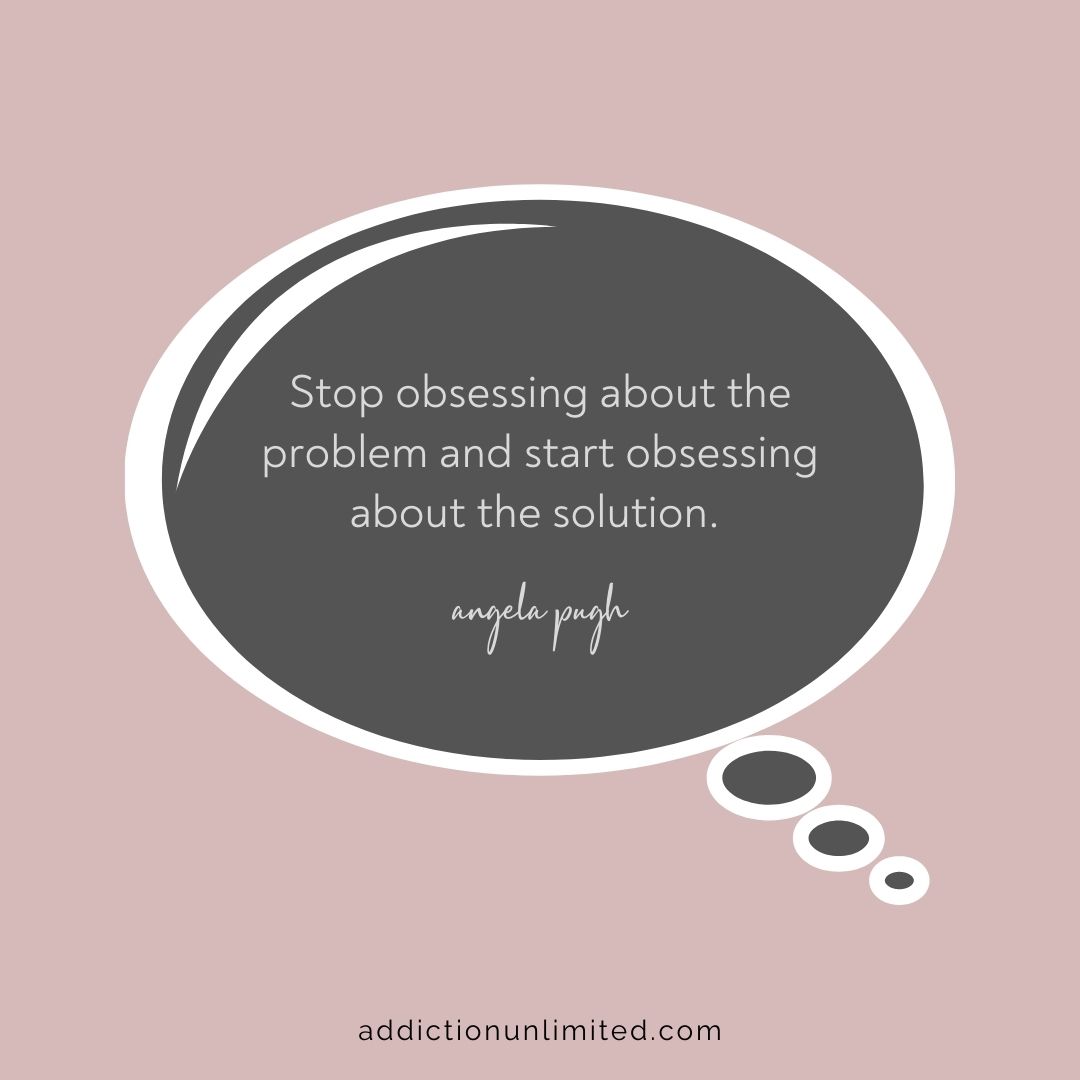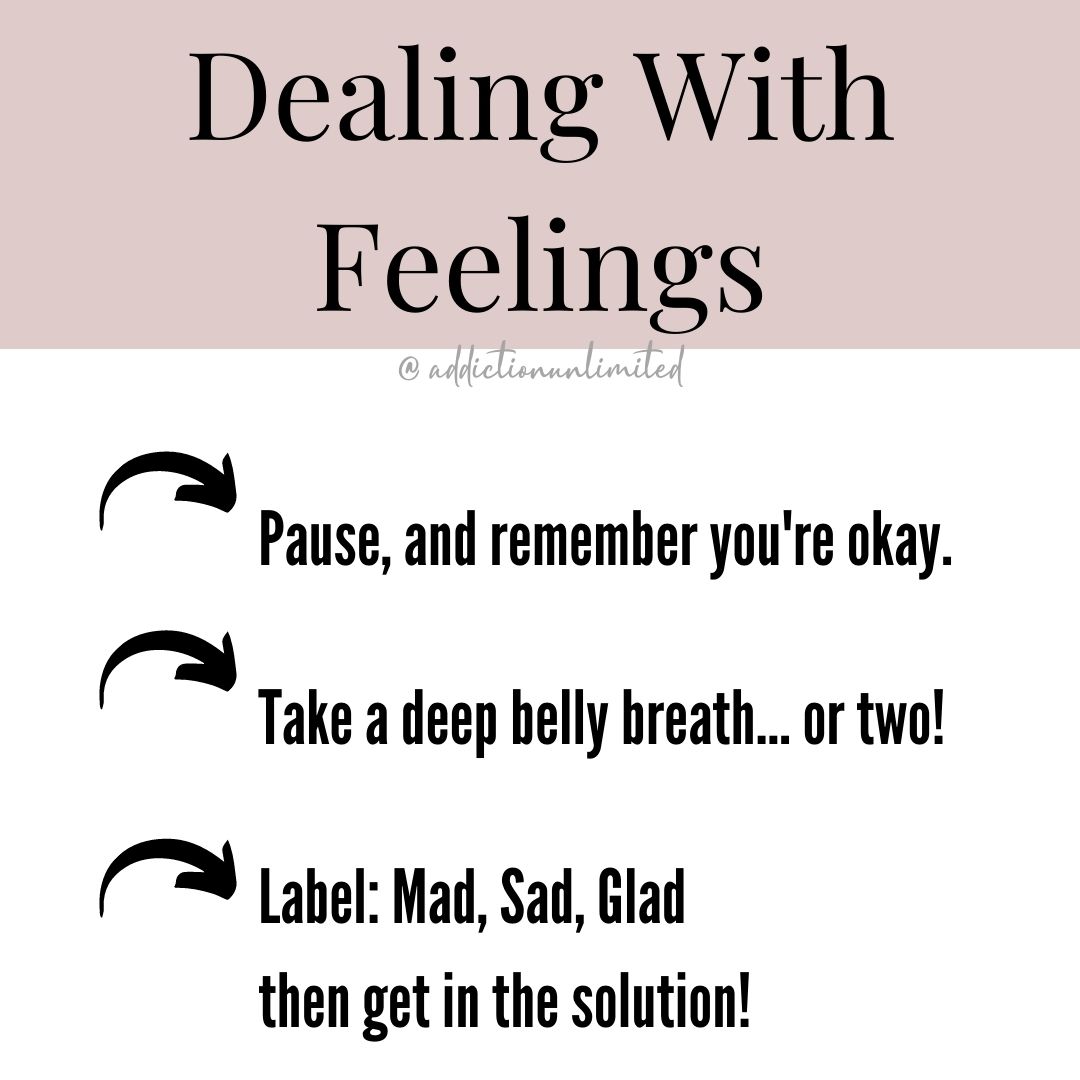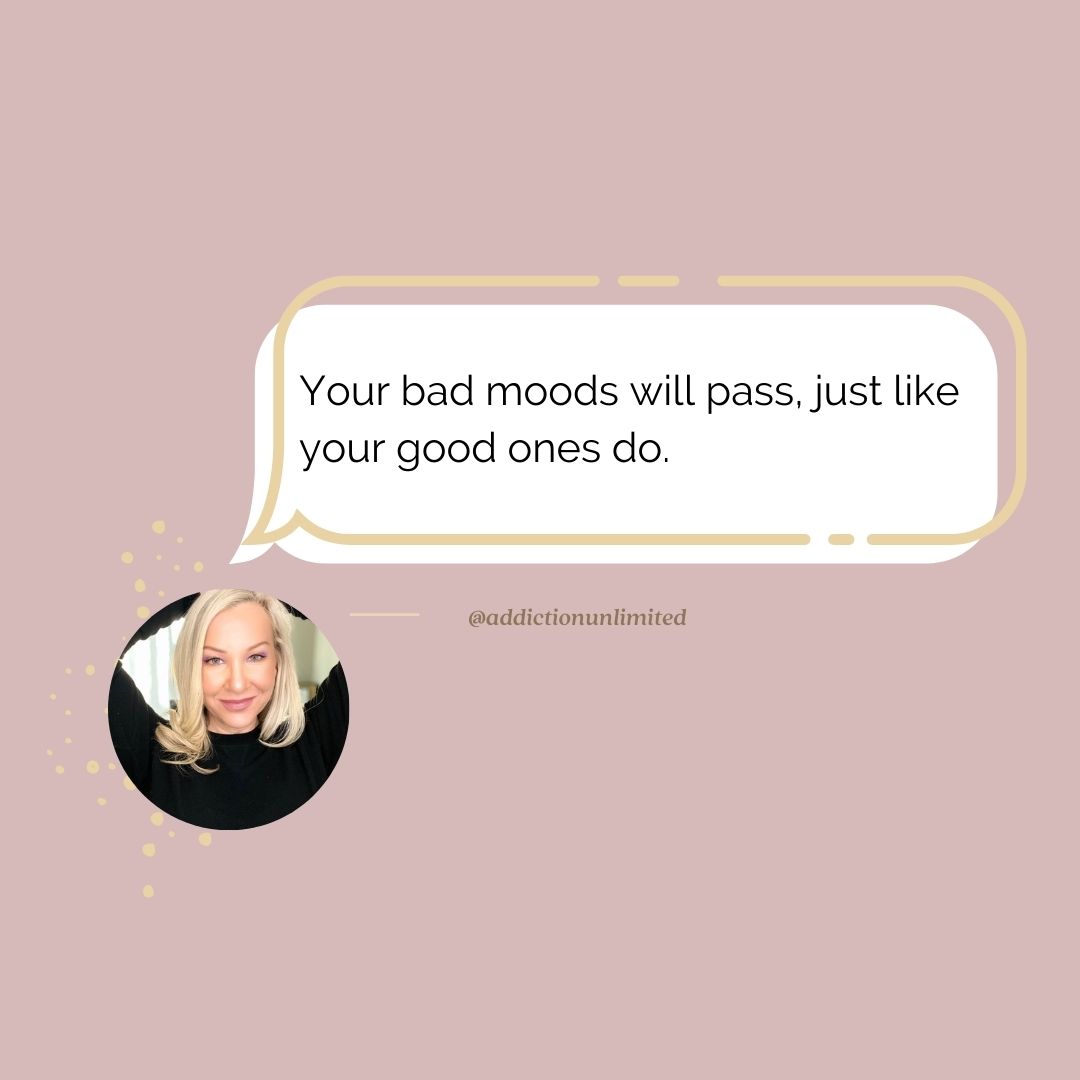Awesome Coping Skills & How To Deal With Feelings

Dealing With Feelings
Mastering your own recovery is how you master your life. Because with the skills you learn on a journey of personal development will allow you to master every area of your life.
Regardless what you are recovering from, you have to take action and start solving a host of problems.
Remember, drinking (or sex, gambling, food, drugs, shopping) is a symptom.
The real problem is the underlying discomfort that pushes you to self-medicate the feelings that you otherwise don’t know how to cope with.
Let’s start with the basics.
First: Feelings come and go.
We all feel a thousand different emotions throughout the day. Some last for a few seconds, some might linger a while and become a mood.
But they come and go.
I say this first because I want you to be clear on this. We have a tendency, especially with negative feelings, to act like it's going to last the rest of our lives.
But what is FACT about feelings?
It all passes. Your bad feelings and moods will pass just like your good feelings and moods pass.
You don't get in a good mood or have a happy feeling and have it the rest of your life, right? A bad mood or uncomfortable feeling doesn’t last the rest of your life either.
They all come and go.
Second: Emotions can vary in intensity.
They can be mild or intense or anywhere in between. It depends on the situation, the person, your coping skills… there are different levels of feelings.
Third: There are no good or bad feelings.
It’s important to get out of this habit of judging your feelings. This feeling is good and that feeling is bad. Just don't put the judgment on it. Everything you're feeling is significant. Not good or bad, right or wrong.

Feelings are feedback.
Everything you're feeling is giving you feedback of what you need to do, where you might need some work, and letting you know you might need to handle something you’ve been procrastinating or avoiding.
If I'm having some feedback from a choice I’ve made, I have to look at that and go, “Okay, why does this keep popping up? I obviously don't feel good about it. So what do I need to do to feel better?”
Don't think about it as good or bad. It's just necessary.
When you learn how to communicate and be okay with what you're feeling, it changes every area of your life.
It makes you more efficient as an employer or employee. It makes you more efficient as a family member to your siblings and your parents, it makes you a better parent, a better partner. Every area of your life is impacted by your improvements.
Recap: Feelings come and go, they can be mild, intense or anywhere in between and don't put a judgment of good or bad on them.
Label feelings
Start with the easy ones.
As we become adults, emotions become more complicated.
They become more nuanced in that we like to really get in there and pinpoint.
So it's not just that you’re sad, it's that you’re disappointed.
We get into naming them on a deeper level: shock, shame, anxiety, disgust, amusement, desperation, doubt…
And this is where it becomes a little overwhelming, too, because now there are all these words being thrown around and if I can't even identify the most basic emotion, then how the heck am I going to get in there and identify desperation? Or shame?
In my early recovery, I could not identify a feeling to save my life.
I remember being asked, “How do you feel about that?”
And I would go blank.
I had no idea how to respond to that question.
When you're just starting to unravel the mystery of feelings, start with the basics.
Mad, sad, glad.
Just start there.
Because if you can start to narrow down what category you're falling into, then you can start digging a little deeper and getting to the core of things.
The key here is you want to get in the solution. You can’t get caught up in the problem or the feeling of being overwhelmed because you can’t label it properly.
You can't stay there. You have to find a solution. You only get relief if you have a solution.
So start with basics; mad, sad, glad.
If you can identify simply that you are mad, then you can start to find the solution.
Google it!
“How do I get over being mad?”
“Google, how do I heal from being mad?”
“Hey Google, what's the quickest way to not be mad anymore?”
You’ll get a million articles and videos eager to get you in the solution.
If you are working on your sobriety, and don’t want to relapse, you have to stay in solution mode.
You don't relapse because you want to drink. You relapse because you want to change how you feel. And oftentimes we equate drinking with relief because it numbs the feelings you don't know how to cope with.

Here’s another thing – emotions aren’t that big of a deal. You get scared of them ONLY because you are out of practice identifying and coping with them.
You can handle feelings, you have handled wayyyy more difficult things in life, and you can handle this.
So let's talk about some super common feelings in early recovery.
Of course, the first one to talk about is anxiety because it's the most prominent. It’s the big bad wolf that we all know, and don’t love.
Part of the panic with anxiety is because we aren’t used to dealing with it. We are used to drinking it away, or eating it away, or shopping it away.
You're not used to going into a situation and being uncomfortable or awkward, or having social anxiety and dealing with it.
Instead, you get caught up in your head,
“I don't know what to say.”
“I don't know how to talk to people.”
“What if no one likes me or talks to me?”
And you drink to drown all of that out.
And when you drink your way through every feeling, you don't learn how to cope with it. You don't learn how to walk into a situation and just be awkward for a few minutes, and work through it.
Most of the other people in the room are awkward, too. It's okay!
Take a deep breath, and smile at someone. It can be that simple. Sit in the awkward and realize you are okay, take a deep breath, and smile at one person.

When you don’t practice simple coping skills then the feelings and anxiety magnify.
It feels bigger and bigger, you aren’t coping well, and it just gets worse.
And solutions aren’t typically big profound things- they are small and easy actions that you can do anywhere, anytime. It’s baby steps. Moving forward with the tiniest steps consistently.
When you can recognize WHAT you are feeling it will allow you the opportunity to not panic about it. And if you don’t panic, then you won’t fall prey to the instant gratification of drinking, eating, sex, gambling, shopping… or whatever your go-to move is.
Instead, you can pause, and think, “Okay, what am I feeling… mad, sad glad? Okay, I’m sad. How do I deal with sad?”
Then, you can take a deep breath and think about all the things around you that you are grateful for, remind yourself that you are okay, and keep taking deep breaths while you get further into the solution.
This is a life-changing skill to have. To understand what you're feeling so you don't have to panic, and you don't have to self-harm in all the ways we self-harm.
We overeat, we smoke cigarettes, we drink, we do drugs, we have bad relationships. We have crappy jobs. We let people walk all over us.
All of these things are self-harm.
So understanding feelings and having solutions is a game changer.
Feelings always pass.
Your bad mood will pass just like your good mood does.






